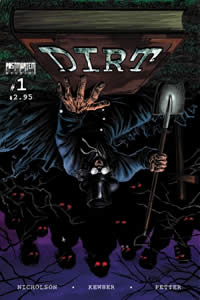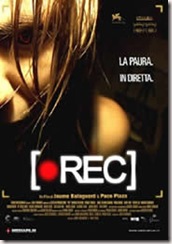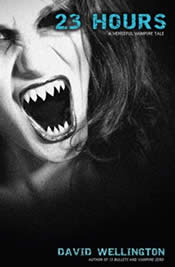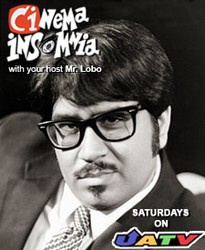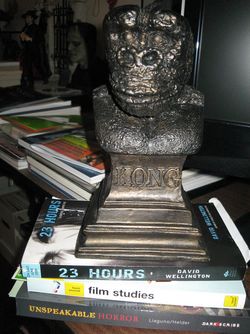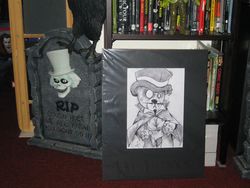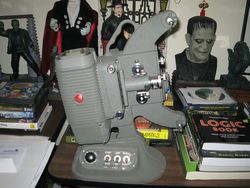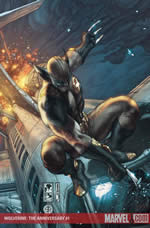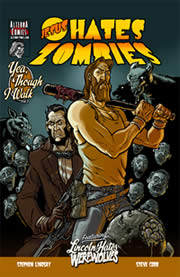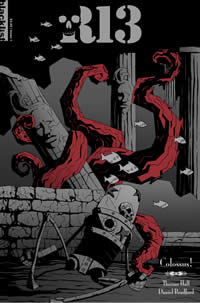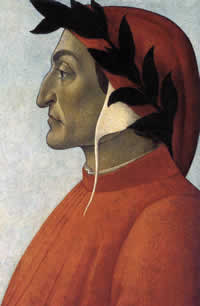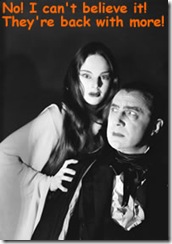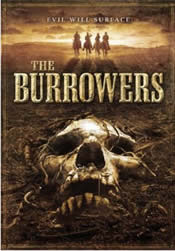
Zombos Says: Fair
It came to this; a
setting sun lingering at the warm edge of approaching night, watched from three
rocking chairs indecisively teetering back and forth on their compass tips,
saddled by three bored and restless riders of the stiff-slatted pines.
In between a dot
and a dash rode Zombos, Lawn Gisland, and me, to nowhere in particular as we
traded silences and hiccups on the terrace. The footfalls of summer could be
heard bounding up the steps, bringing with them the sizzle of barbecues, giggly
splashes from pools, and the monotonous drone of air conditioners humming
through hot, molasses-sticky, nights where forgotten candy bars melted in jean
pockets, mosquitoes danced to the crackling of ice cubes in sweaty glasses of
lemonade and iced tea and soda, and texting fingers Keystone Copped their
slippery grasp on hot cell phones.
"I am not
looking forward to estivating by the seashore or anywhere near a
barbecue," said Zombos, absently swirling the iced tea around in his
glass.
"Mind chewing
on that a bit more for me?" asked Lawn Gisland, lazily swatting a fly off
the pitiado floral rose on his right boot. He yawned larger than a barn door
opens and stretched his long legs out in front of him. Former movie cowboy and
now traveling circus rodeo star, he was never one for estivating in all his
long ranging years.
"Pass the
summer," explained Zombos. "Estivate means to pass the summer."
We stared off into
the waters of Long Island Sound as it grew dark. Zimba brought us another round
of iced tea. Lawn took the half-lemon, cut just for him, and squeezed it
between his massive fingers. We often joked that if he wanted so much lemon in
his iced tea he should be drinking lemonade.
"Oh, I almost
forgot, this came today," said Zimba. She held up The
Burrowers DVD.
I jumped up faster
than Zombos. "Last one in is a really bad egg!" I said, snatching the
DVD. Zombos and Lawn quickly followed me as we hurried to watch this Western horror
tale.
Lurking monsters
spoil the tranquil Western Plains in J.T. Petty's The
Burrowers; an almost refreshing mix of
creature-feature, saddle-sores, and the American Old West. I say almost
because, while Petty mines the bitter social climate between Indian and settler
after the Trail of Tears and the demise of the bison—a once
plentiful food source for the Indians—he doesn’t dig deep enough into his
characters or embellish their actions to make this a definitive terror on the
range Wild West story.
Homesteaders are
massacred during the night. A search party is quickly formed to go after the
Indians who everyone assumes butchered the men and kidnapped the womenfolk.
While you may be tempted to draw comparisons to John Ford's The Searchers, that would be a bad trail to follow.
Ford composed an emotionally-charged journey that eventually forces one man to
confront his prejudicial demons, and shot it against sumptuous vistas of sky
and land where the deer and the antelope play. While Petty uses his budget-lens
quite well to show the desolation across vast distances and makes his assembled posse just as
calloused with similar prejudices, its riders and their intentions pale in
comparison. No one worth a tinker's damn stands out from the tumbling
tumbleweed to take the bull by the horns or, in this case, the ugly as a mud
fence Burrowers by their withers through his shallow direction.
Clancy Brown's
tall and sure character, John Clay, is not given enough dialog or motivation to
sink his spurs into. The brash relationship between the slow moving cavalry,
wanting to treat every Indian as hostile and hang them high, the lovelorn
Coffey (Karl Geary) wanting to move with more urgency to get his kidnapped fiancé
back, and Clay's impatience with the cavalry's youthful commander never heats
to branding iron hot in this story. And as soon as the riding gets rough, the
Indian-hunting cavalry and the more determined group of rescuers, led by Clay,
go their separate ways after a brief confrontation, splitting the tension, but
not intensifying it. Also left behind is any hope of recalcitrance, growth in
characters, or mighty clashes of egos to move this period piece beyond the more
contemporary getting picked off, one by
one, formula.
Petty makes the
horror palpable through brief glimpses of the hungry quadrupeds skulking in the
bushes, waiting for the cowpokes to fall asleep. The way in which the Burrowers
paralyze their victims, bury them, still conscious, in shallow graves to ‘season
the meat’—you will know what I mean when you watch the movie—and then chow down
after a few days wait is gruesome. But he never moves beyond the lazy horror
movie tempo of stalking and dying. If you have watched a few contemporary
horror movies, you know how often it always seems to boil down to one frenetic
encounter after another, leading to one victim after another being killed, with
emphasis on how creatively or gorily that kill is done. For Clay and his search
party, you can break it all down to when an attack will take place—at night—and
who will be next; place your bets on the annoying guy who can’t shoot straight.
This approach fills the running time; suspense and chills don’t, even when the rescuers
find their bullets aren’t effective in holding the Burrowers at bay.
In-between encounters,
the cowboys learn a little more about the Burrowers,
who mysteriously show up every twenty years, chow down hardy, and then
disappear until the next time. When Clay and his party hear that another tribe
of Indians knows how to fight these mysterious Burrowers, they go looking for
members of that tribe to help them. The method that tribe uses, however, is not quite what the rescuers had in
mind, which leads to the only nail-biting showdown with the Burrowers. If only the rest of the movie could have
shown more of this.
At one point I
hoped the cavalry would show up with a Gatling gun; but maybe the budget
squelched such ideas.
After the initial
attack on the homestead in the opening minutes, the pace becomes leisurely with
little verve to distinguish the proceedings from the usual horror movie
situation. When a young survivor from another attack is dug up, she's quickly
packed up and sent away with Dobie (Galen Hutchinson), a young man whose mom
sent him along with the search party hoping it would make a real man out of
him. Not much happens between the paralyzed girl, who can only wiggle her toe
against her boot, and Dobie after he is sent back with her, hoping to find a
doctor who can help; except for an encounter with the Burrowers that ends on
the expected down note.
Eventually you
start to wonder how many people are buried in shallow graves lying a few feet
away from the riders as they make their way along the trail. At one point, a
horse's hoof breaks through the ground—and
something more—but Petty keeps his riders moving unawares. The
beautiful views of the Plains take on an ominous tone after this, especially
when you realize the Burrowers bury their living victims close
to where the attack takes place.
The Burrowers fails to use, play with, or dance around
the wealth of tropes, clichés, and thematic conventions most of us are familiar
with after watching Gunsmoke,
Wagon Train, Unforgiven, Dances With Wolves, and many other
Western shows and movies.
While not exactly
a hanging offense, it would have given the story more true grit.
